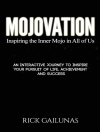In ‘Courage to Stand Alone, ‘ U. G. Krishnamurti presents a profound exploration of individuality and self-realization that challenges conventional paradigms of spirituality and self-help. Written in a candid, conversational style, the book unfolds through a series of dialogues where Krishnamurti articulates the necessity of self-awakening free from societal constraints and the expectations of established beliefs. Its literary context emerges from the mid-20th century’s existentialist movements, intertwining Eastern philosophical traditions with Western thought, fostering a discourse around authentic existence and the courage required to embrace one’s truth. U. G. Krishnamurti, an influential figure in contemporary philosophy, was often regarded as a maverick thinker, distilling insights from his unique personal journey, steeped in the quest for liberation from societal norms. His background, marked by a temporary alignment with more prominent spiritual figures, ultimately led him to question traditional teachings, propelling himself into a path of radical individualism. His ideas, grounded in a genuine lived experience, resonate with those who have faced the complexities of modern life. This book is essential for readers seeking a compelling guide to self-discovery and independence. Krishnamurti’s thought-provoking insights encourage readers to cultivate their understanding and awareness while fostering the courage to transcend expectations imposed by society. It’s a resonant call to stand alone in one’s truth, making it a must-read for anyone yearning for authenticity amidst the chaos of contemporary existence.
Sobre o autor
Uppaluri Gopala Krishnamurti, who is commonly known as U.G. Krishnamurti or simply U.G., was a thought-provoking philosopher and speaker. He was born on July 9, 1918, in Masulipatnam, in the state of Andhra Pradesh, India and he passed away on March 22, 2007, in Vallecrosia, Italy. U.G. is often mistaken for another prominent Indian philosopher, Jiddu Krishnamurti, to whom he has no relation. U.G. Krishnamurti’s philosophy is often considered anti-traditional and he is noted for his radically iconoclastic views and rejection of the conventional narratives of spirituality and enlightenment. Rather than offering a structured doctrine, U.G. emphasized the necessity of a personal, direct confrontation with the pain and anxiety of existence. His book ‘Courage to Stand Alone’ is based on edited transcripts of his conversations in Amsterdam, and the title reflects his core teaching that the individual must face life and its uncertainties without reliance on societal or religious crutches. His literary style is straightforward, often colloquial, and uncompromising. Unlike many other spiritual teachers, U.G. asserted the fruitlessness of the search for happiness or deeper meaning through spiritual or intellectual methods, which he considered to merely be distractions from reality.












